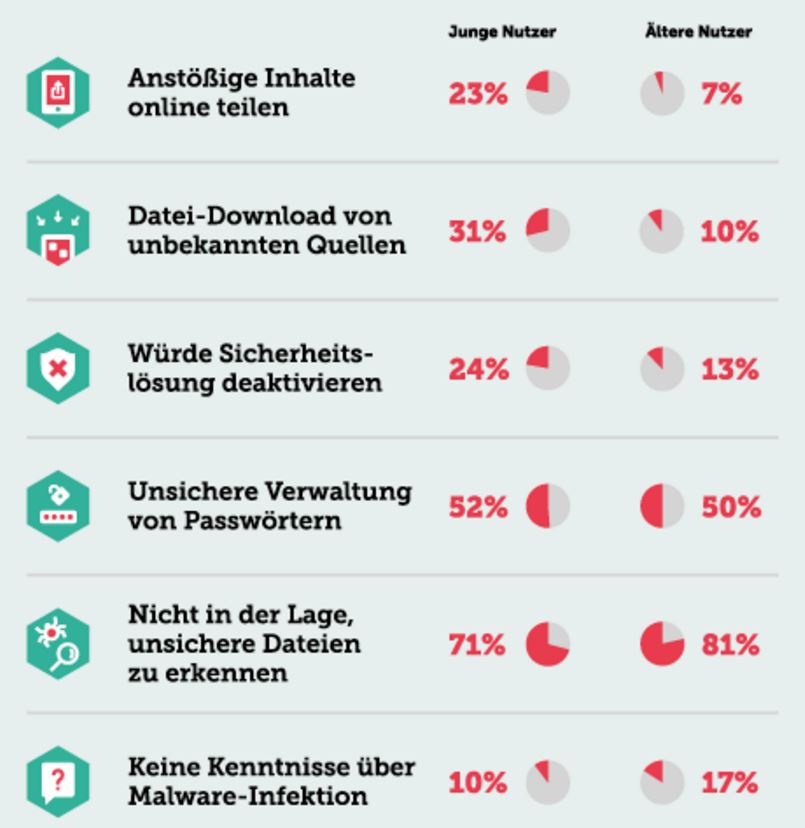Who surfs safer - young or old?
Internet users under 25 are better at recognizing cyber dangers, but also take higher risks than people in the 45+ age group. Kaspersky Lab has taken a closer look at the cybersecurity behavior of different age groups.


For most younger users (83%), posting private data on social networks and messaging services on a daily basis is part of everyday life. Among the 45+ age group, only a good half use these services. The difference between young and old is even more serious when it comes to the question of whether offensive content has ever been disclosed. Only 7% of older users, but 23% of younger users agree here. From a cybersecurity perspective, users should always weigh up what and how much they post, because for cybercriminals all freely accessible information is potentially interesting for cyberattacks.
Older people are more likely to look at small print
When it comes to installing new software or downloading files, the 45+ group is more cautious: only 12% completely ignore the fine print of the terms and conditions, while one in four (26%) of those under 25 quickly click away this information. 24% of the younger and 13% of the older would even ignore any warnings from their security software. The situation is similar for file downloads from unknown sources: Almost one in three younger people (31%) are willing to do so, but only one in ten older people. Accordingly, 57% of younger users and 34% of older users were also affected by an infection with malware in 2015. Added to this is the annoyance when downloads install additional programs or change browser and operating system settings.
Youth with better cybersecurity skills
Younger users score with a better cybersecurity instinct. If, for example, a music download were offered in different formats, only 30% would choose the unsafe exe format and 29% the safe wma file. Here, 42% of the elders opted for the dangerous format and only 20% for the safe one. And 17% of the older ones, but only 10% of the younger ones could not explain the causes themselves after an infection with a malicious program.
Incidentally, both age categories agree on one point: about half of both younger and older users do not protect their passwords adequately and simply write them down on notepads, for example.
"Older Internet users are certainly more careful with their personal data. But they are less familiar with digital dangers. In general, however, a trained instinct when it comes to cyber dangers is essential," explains Holger Suhl, General Manager DACH at Kaspersky Lab. "All age groups should be equally cautious, regardless of how intensively they use the Internet."
In addition to a strong cybersecurity instinct, users should deploy an IT security solution on all devices used (Windows, Mac and Android), the vendor advises.
Press Release Kaspersky Lab
Note on the study: In addition to a large-scale survey (12,355 users surveyed worldwide, cf. here) together with B2B International, an online survey conducted by Kaspersky Lab was also evaluated.









